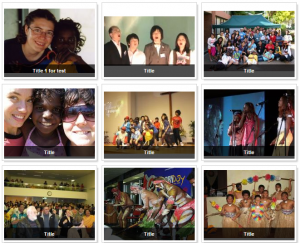2Welcome
Welcome to the course Understanding the Sacraments in the Uniting Church. This course is coordinated by the Centre for Theology and Ministry (CTM) and offered in collaboration with regional and local leaders.

This course is designed to enable lay people to engage with the theology and practice of the two sacraments of Baptism and the Lord’s Supper (also called Holy Communion or the Eucharist), as practised by the Uniting Church in Australia. The course is open to any interested lay person to participate, complete the assessment tasks, and gain a Certificate of Achievement.
Participation in the learning activities and core assessment tasks of this course assists all participants to better understand the theology and practices of the sacraments in the Uniting Church. The course introduces the topics listed in the Assembly Standing Committee’s guidelines concerning preparation for authorisation as a Lay Presider. Additional (optional) assessment tasks may be requested as part of the further process of application to the Presbytery for authorisation to preside at the Sacraments.

Educational commitments
In the education of local lay leaders the Uniting Church is committed to adult education approaches which create a temporary but intentional community of learning – a safe place to explore questions, perspective and issues in contemporary life. Educational activities engage with the personal experiences, local contexts, and diversity of cultures present within the learning group and the wider Uniting Church. Current President and long-time Uniting Church leader Andrew Dutney argues that although the Uniting Church has no distinctive doctrines of its own by virtue of its self-recognition as part of the universal Christian Church, it does, “or ought”, have something to say about the contemporary issues of society. For this reason the 1985 declaration The Uniting Church is a Multicultural Church is more than an inward-looking self-identification. Standing in the pattern of the Uniting Church’s Statements to the Nation it acts as “a sign of hope within the Australian community, and particularly to those who are pushed to its fringes on racial and economic grounds” (see Par. 4 ). The Multicultural Church declaration recognises the important role of education programs in training leaders (see Par. 8), and recognises the current inadequacy of language to represent the inter-related diversity of cultures and languages (see Footnote in the declaration) within the Church and the Australian community. God reaches out in love to all people through Jesus Christ, and the Uniting Church seeks to join in God’s mission.

There are no silly questions
The educational programs for lay leaders coordinated by the CTM aim to create a ‘safe place’ to explore deep questions and diverse perspectives, but at times participants may feel self-conscious or uncertain about raising particular matters in a public forum. At such times we encourage you to speak to the course leaders privately – your questions are doubtless significant for you, and may be important for others in the learning group. Questions or doubts are a faithful response to eternal matters in rapidly changing times.
